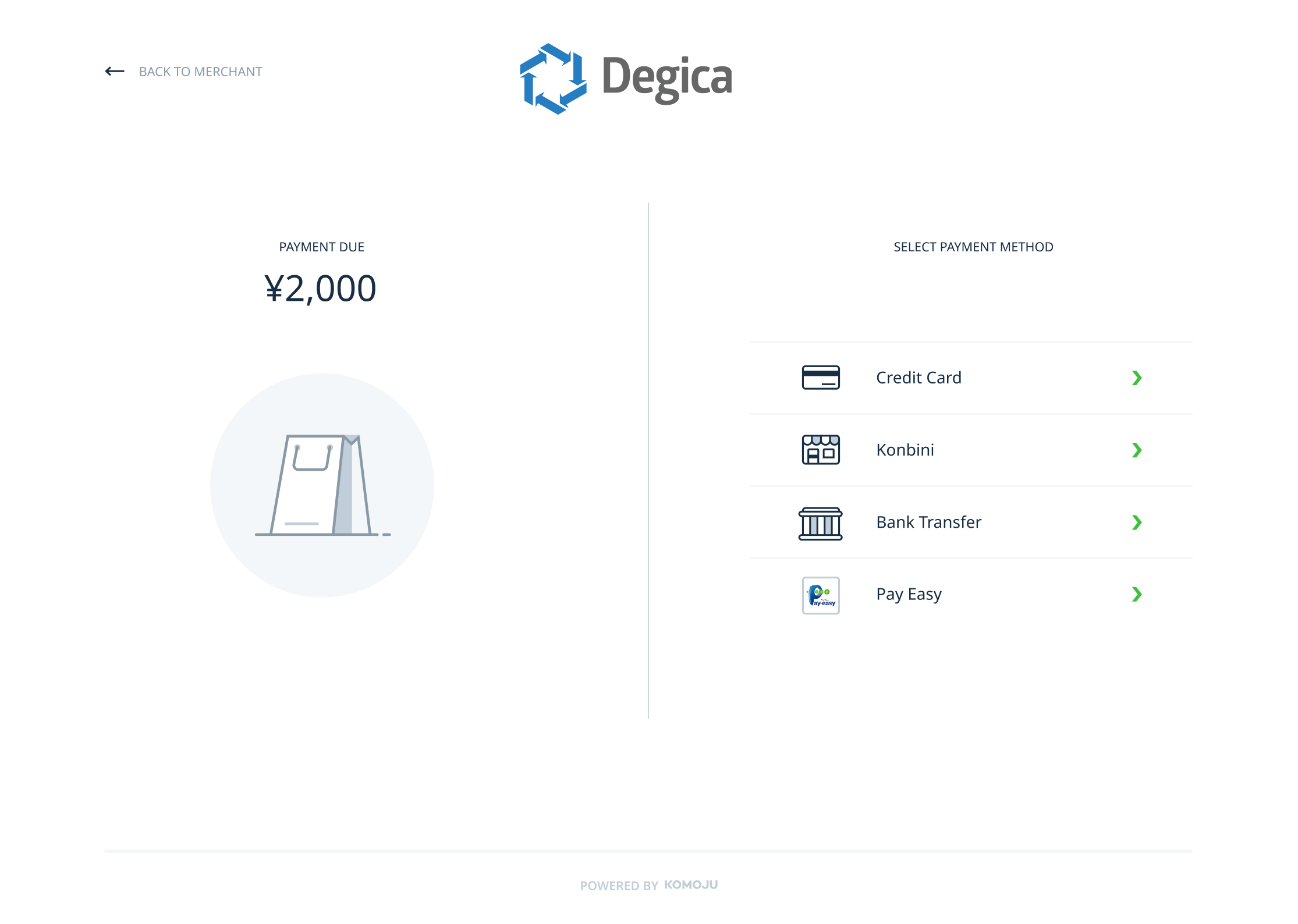Hosted Page
Learn how to use our hosted payments page for a quick and easy integration
KOMOJU Hosted Page lets you accept payments by simply redirecting users to a page hosted by us.
A Hosted Page integration provides the following features:
- Fully international checkout supporting multiple languages and currencies
- PCI compliance and 3D Secure out of the box
- Cross branding with customizable logo and choice of light or dark theme
- optional Payment method picker UI allowing customers to pay how they want
- optional Display product information alongside payment form
- optional One-click payment for repeat customers

Updated 5 months ago
What’s Next
